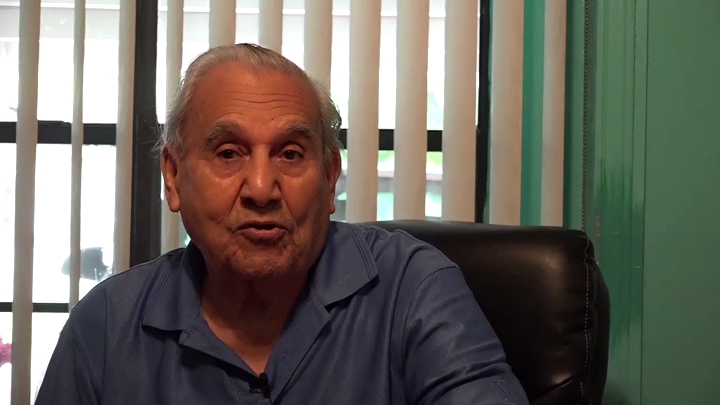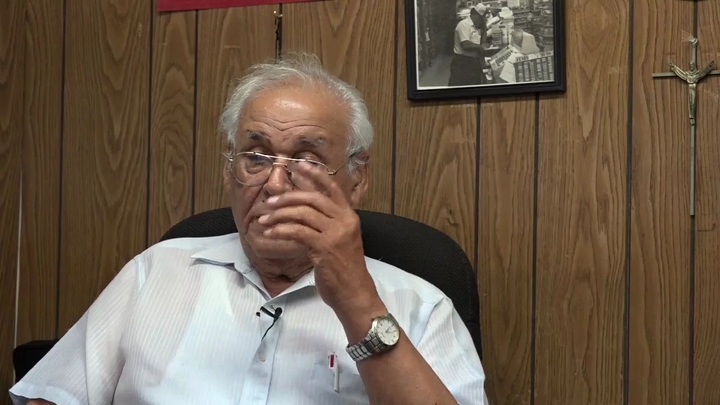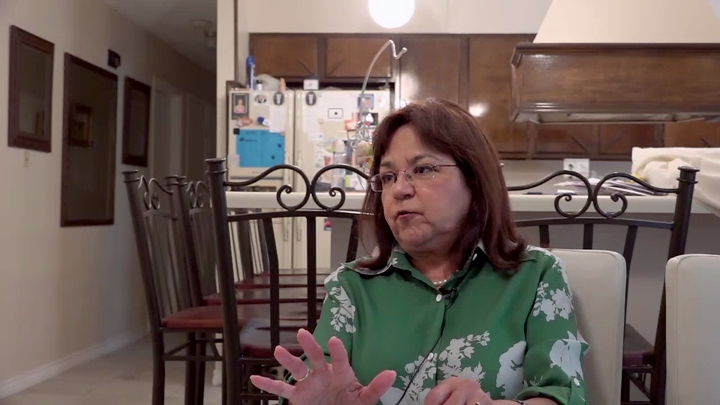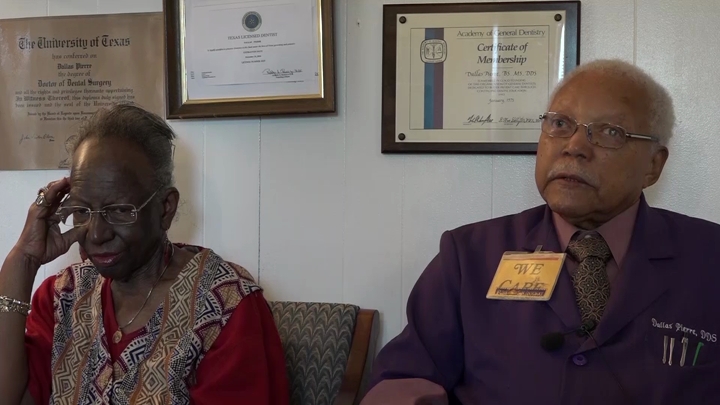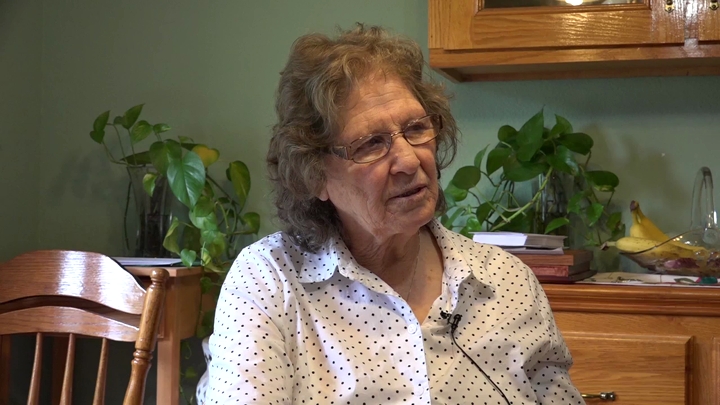Salinas / RC's Father Fighting in World War II
sign up or sign in to add/edit transcript
SE: You mentioned that most of the men in your family were in the army. Did your dad fight in World War II (1939 – 1945). RS: Yes, he did. SE: Can you tell us about any of his experiences and if you received benefits from the G.I. Bill? RS: Here’s what happened; dad was very quiet about what he saw over there; he saw a lot. He saw a concentration camp. Dad was very anti-German for years and not to mention the Japanese too. He saw a lot of his buddies getting killed. I would try to reason with him when I found out that the Japanese Americans had been incarcerated during World War II. I said, “dad, that was wrong,” and he said, “they were Japanese. They deserved that. Look at what happened at Pearl Harbor.” I said, “yes, but these were Japanese Americans with no known ties to Japan.” I said, “all those people that were incarcerated never committed an act of sabotage against the government or against the United States.” I said, “why can’t you admit that it was wrong.” Nope. Then on the Germans, it was even worse. He said to me one time, “if you would’ve seen what I saw on the other side of Munich.” And the one thing he never forgot was that their captain told them, “Okay guys, go outside.” Because he could see it was affecting them. “Go check out the houses across the street.” Dad said, “yeah, you’d go in there, and all of them had crosses and rosaries,” and he said, “Hey, these are Catholics like I am.” And he would go ask them, “did you know what was going on across the street?” and they said, “No, we never knew about that.” He said, “Yeah, I’ll bet.” He never forgot that. He said, “They weren’t Catholic, they weren’t Christians, they weren’t anything. Or they were scared to death of their government.” But he wouldn’t turn loose of that hatred, or the Japanese. SE: So he went to Germany? RS: Well, he went to Germany and then, when the war ended, he never forgot because he said they would show newspapers to the Germans that said, “Hitler kaput,” and they still wouldn’t believe it. “No, he’s coming back, he’s coming back.” And then they got the orders that they were going to go down to the Panama Canal and up to Japan. He was on his way, and they did stop in the Philippines. He was there more or less when Arcadio’s brother got killed in the invasion. We call it the Invasion of Luzon, and my friends told me, “No, call it the Liberation of Luzon.” So, it was quite an experience. SE: When your dad came back, did he get military benefits from the government, like the G.I. Bill? RS: No. Because he chose to work at his mother’s store. They worked as a team. But, I remember when dad came back, and he stayed in bed for a long time, and he was very isolated. Now we know what they call it Post-Traumatic Stress. I would wonder why he wouldn’t want to play with me. He wanted to be in bed like he was tired. Evidentially he saw a lot, and he didn’t know how to process it. Now when I hear about the cases nowadays, it’s easier to connect. What they would do with him was the old-fashioned remedy. Mother would have him swept. He wouldn’t go into details. He would just say this and that. But he loved the Philippines. He said he would see the Filipino dresses and imagine my mother wearing one. He was proud of what he did. SE: Did any veterans that you know of when they were coming back from World War II deal with any discrimination in Rio Grande City? RS: No. There would never be any discrimination there. They set up the night school for the veterans, and that was to give a chance to all those who had not finished, at whatever grade level, to finish and get either a junior high diploma or a high school diploma. They did have that for a long time. It was a good school program. SE: Was it attended by both Anglos and Hispanics? RS: Yes. We had a certain subdivision right next to Fort Rigo. They called it the Rigo subdivision. First preference was for veterans to buy their lot onto the G.I. Bill. You could get a very substantial discount on your house. SE: So, your dad never wanted to get a house there? RS: No. SE: did you have a house already. RS: We had our own house.
| Interview | Interview with RC Salinas |
| Subjects | Family |
| Education › Adult Education | |
| Military › World War II | |
| Military › Home Front | |
| Military › Veterans' benefits | |
| Military › Veterans' benefits › Post-Traumatic Stress Disorder | |
| Family › Parents | |
| Tags | United States Army |
| G.I. Bill | |
| sign up or sign in to add/edit tags | |
| Interview date | 2015-06-25 |
| Interview source | CRBB Summer 2015 |
| Interviewees | Salinas , RC |
| Interviewers | Enriquez, Sandra |
| Robles, David | |
| Duration | 00:05:20 |
| Citation | "RC's Father Fighting in World War II ," from RC Salinas oral history interview with Sandra Enriquez and David Robles, June 25, 2015, Rio Grande City, TX , Civil Rights in Black and Brown Interview Database, https://crbb.tcu.edu/clips/2031/rc-s-father-fighting-in-world-war-ii, accessed February 24, 2026 |


